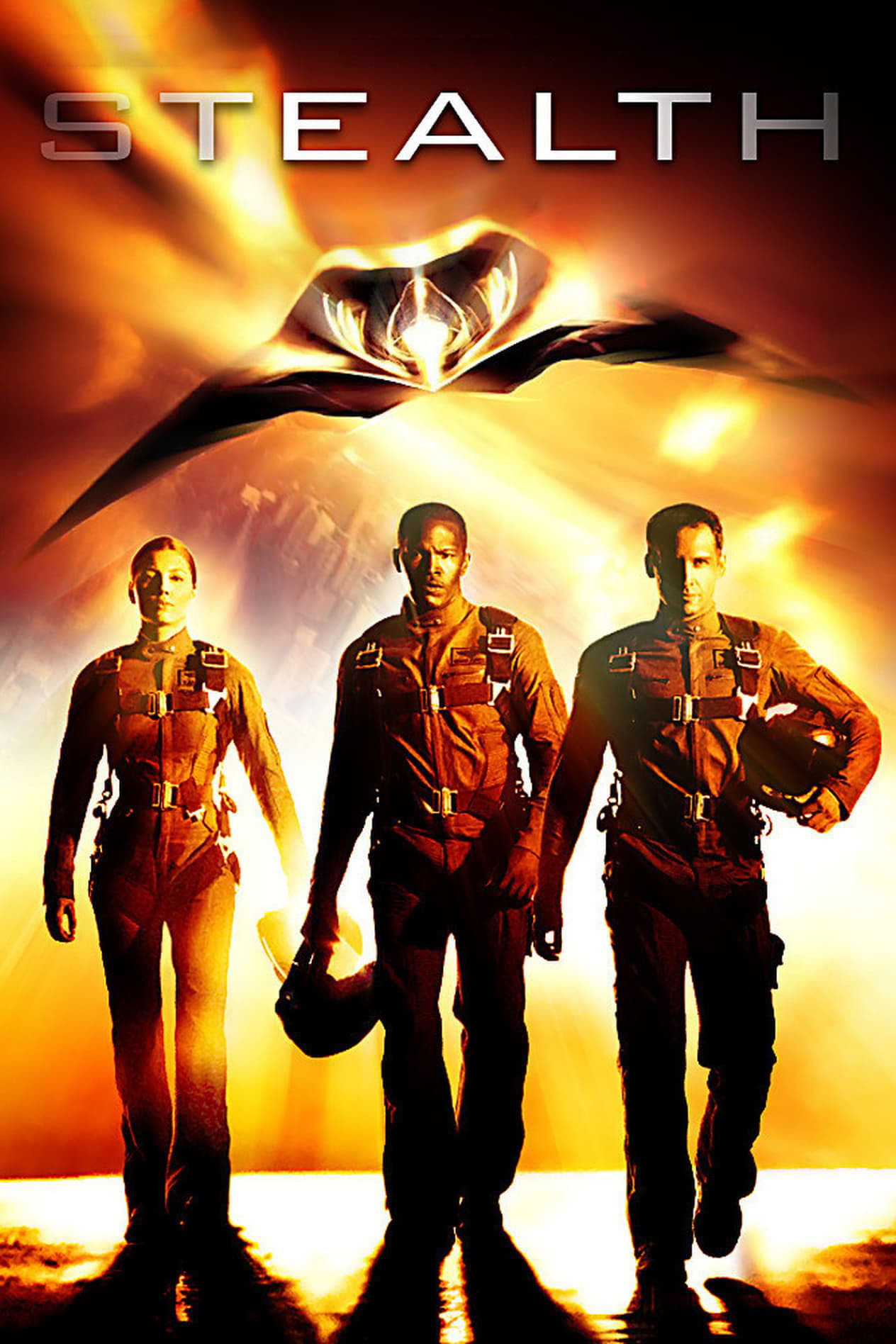
Deeply ensconced in a top-secret military program, three pilots struggle to bring an artificial intelligence program under control ... before it initiates the next world war.
09 Feb Stealth (2005)
One of the Guys
An interesting way to see this box office failure is to consider the role of the US Navy rather than that of Hollywood. The film industry makes these sort of stupid and expensive mistakes routinely. The military has less room for tolerance, and when it goofs like this, it really costs.
The film supposedly cost $130M to make, but that was just the Hollywood bill. When the Navy gets behind a film as it did here, it commits billions (many billions) in hardware and thousands of people. The rationale is that when these things work, they help recruiting. Beyond the obvious, there is some serious thought given to how national narratives can be woven to incite pride in providing military service, and how a suitably crafted professional armed forces supports domestic democracy.
The way this works is that beyond making assets available, the Navy provides script guidance (the thing has to support the goals) and technical advice. Both fail so miserably here that it gives us lessons about the W Bush management of narrative. (This is quite apart from any qualms about glorifying military action.)
The script has issues in this regard. Today, it is entirely believable that you‘ll find attractive, kickass women competently flying front-line aircraft. But it is so demeaning to everyone in the military to cast her as the damsel in distress that is only rescued because she has a lover in command. This is such a profound issue and it bears so centrally on the nature of the service that I am amazed at it. I can only believe that Bush SES appointees believed that this was on point with the Boss‘s notion. I’ve seen how this works.
More interesting to filmgoers will be the extrapolation of hardware. W Bush military doctrine was to push for advanced weapon platforms already in the pipeline. Practically, that meant pushing through aircraft designed 15 years previously. As it happens, the management systems you use to design these things change 4 to five times more slowly than technology does, so you are always making planes for the wrong mission using several generations older technology. There were ways around this, but not ones that interested the Bush Whitehouse.
So the mission of the Navy advisors was to 1) push for the need for next generation F/A aircraft 2) indicate the role for UCAV, one that is very carefully defined to complement manned aircraft. At the time of this film, the extent to which thrust vectoring had been mastered was still classified, public stealth techniques still required strange shapes. Pulsed detonation engine research is still hidden, and in 2004, Quantum Interaction computing techniques were just being considered. (This is different than quantum hardware.)
Capable combat drones were suppressed in the Bush era (to help fund the large programs), and remotely piloted drones are a far cry from autonomous swarming vehicles, but there was a shortlived serious effort in the latter.
So they could have done a fantastic job on describing a future that teen hardware geeks could have really dug into, both on the manned and unmanned side. They could have placed something really sexy in the center of the film and made it work as a film and as an attractive vision. But they were just… too… stupid. And Rob Cohen matched them.
Sam Shepard plays Lear.
Posted in 2012
Ted’s Evaluation — 1 of 3: You can find something better to do with this part of your life.


No Comments